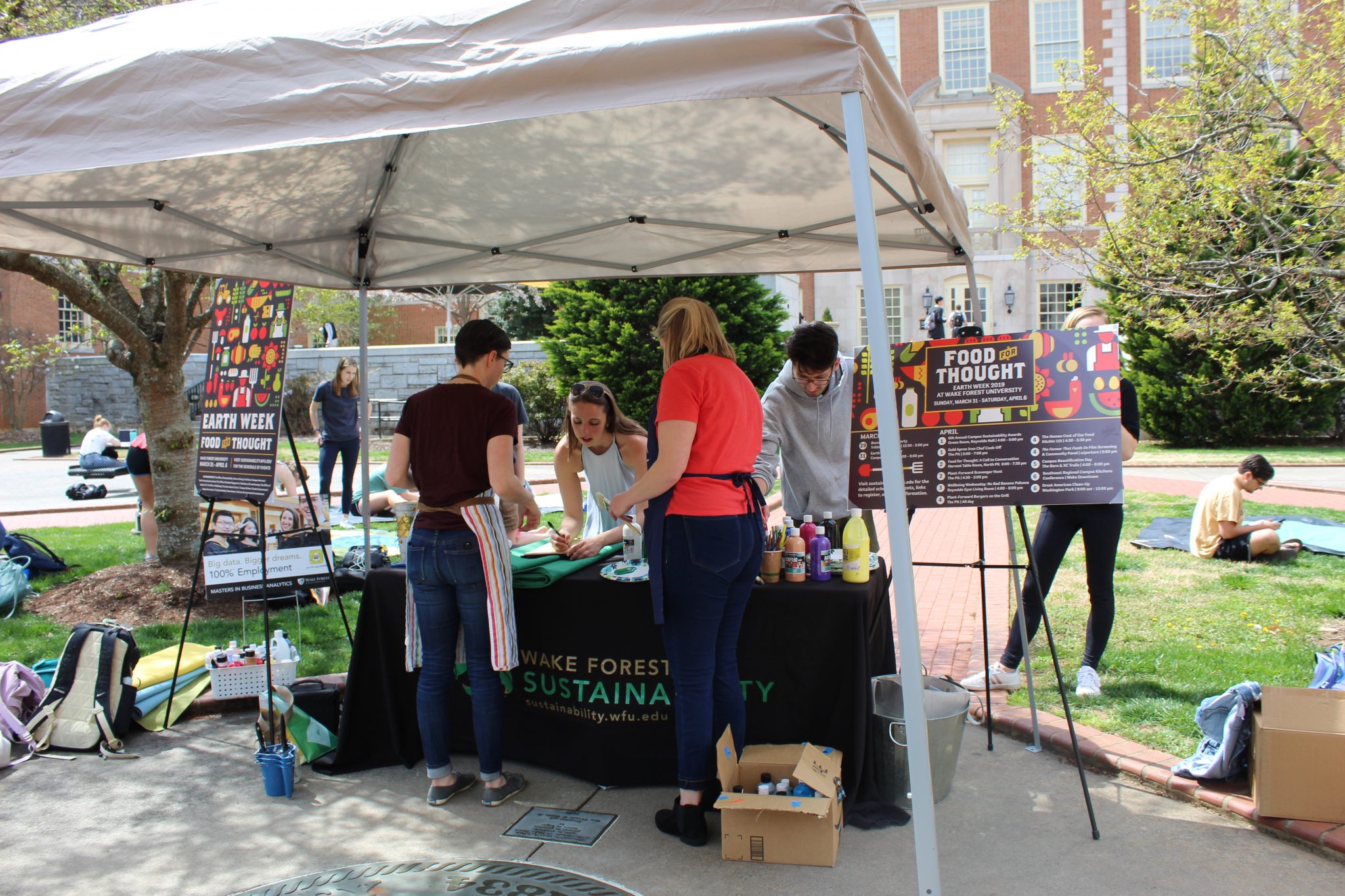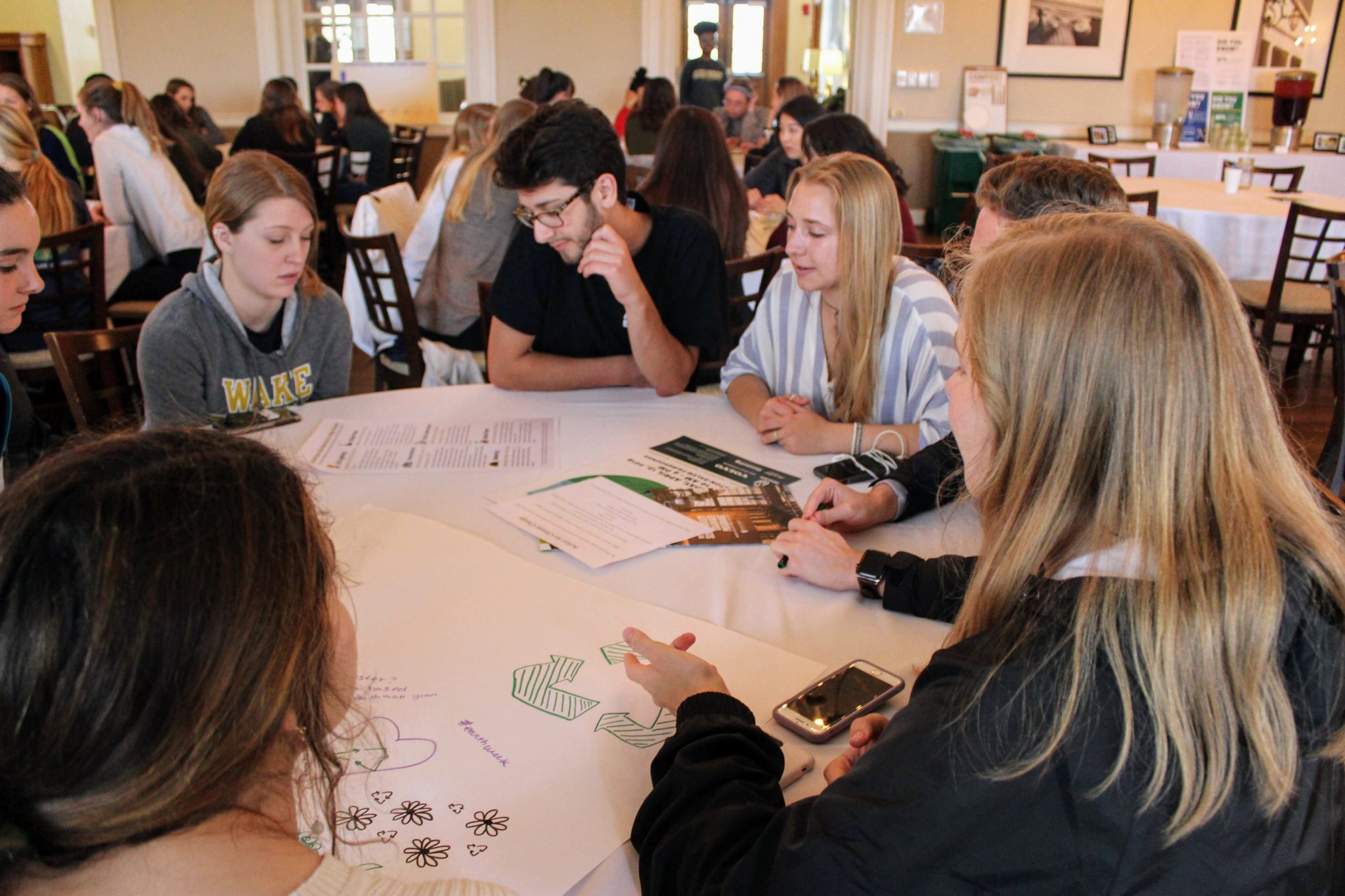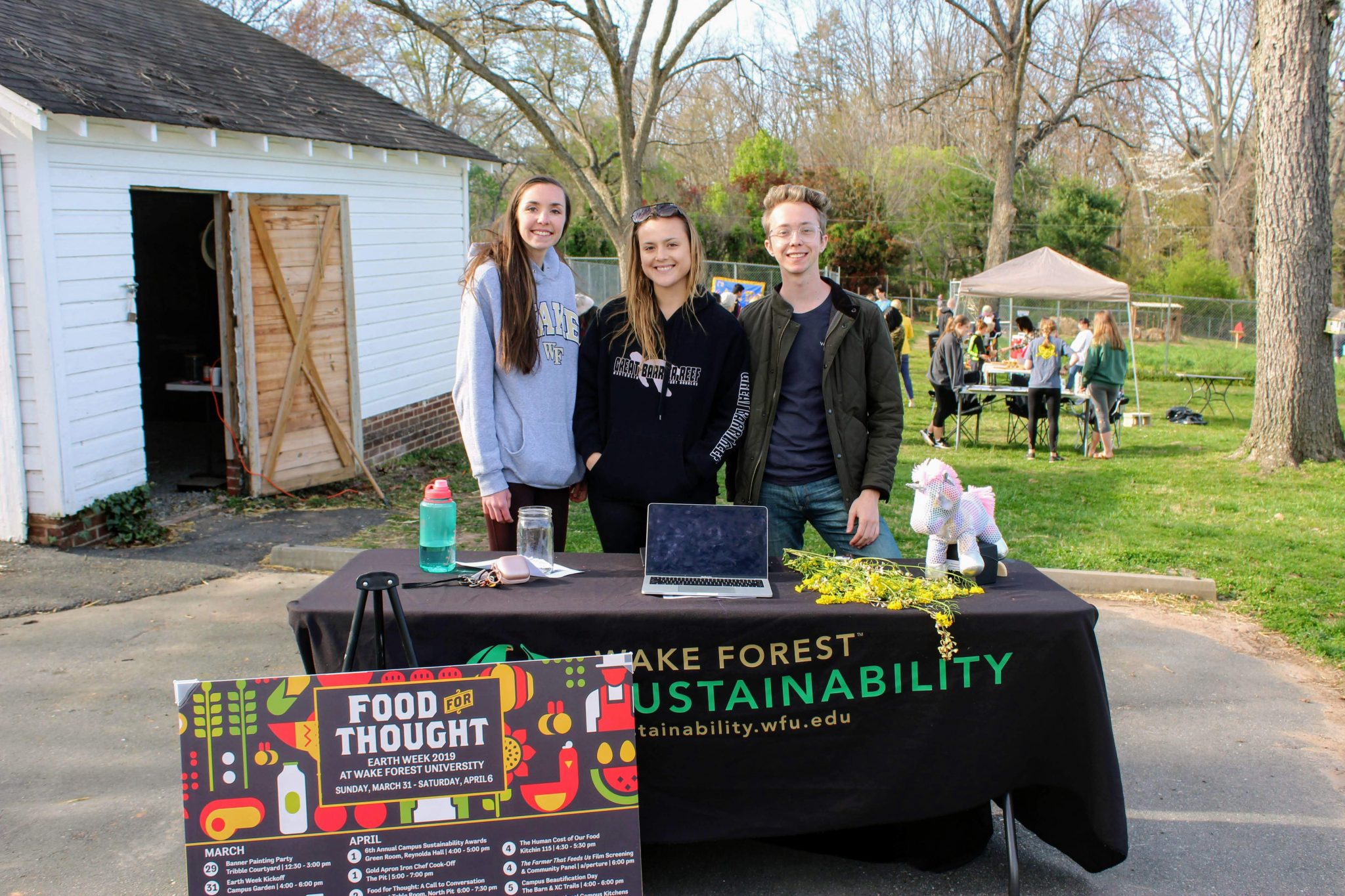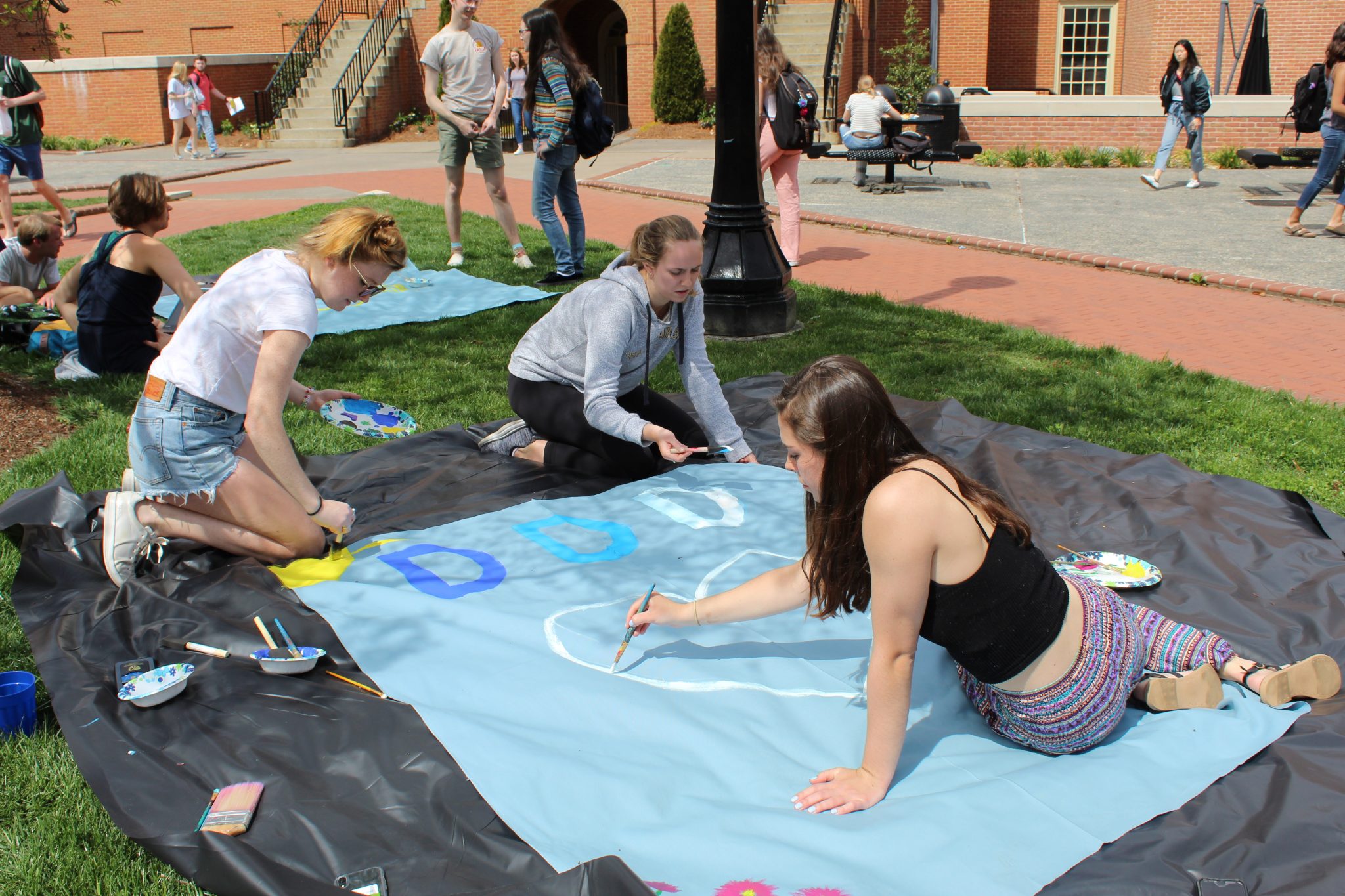Students Celebrate Earth Week on Campus
By: Caroline Walker (’22) Content Assistant for the Office of Sustainability
This year’s Earth Week celebration, which is themed “Food for Thought,” centers on an environmental justice approach to the issues of food access and insecurity. The Office of Sustainability partnered with 13 different student organizations and campus offices to organize the nearly 15 different events that are taking place during Earth Week from March 31 through April 6.
Wake Forest began preparations for Earth Week on March 29, as various student organizations and campus offices gathered in Tribble Courtyard to paint banners that artistically expressed their connection to this year’s theme and environmental justice. These banners are now displayed around the Quad facing Wait Chapel and will remain for the rest of Earth Week.
The Communications and Event Coordinator for the Office of Sustainability, Erin Stephens, commented on the informational impact and unifying effect of these events.
“It’s amazing to me what public awareness and art displays can do for the week,” Stephens said. “I think it’s really nice and important that we try to create those types of events that bring the community together like banner painting … to get attention in a more organic and community-oriented way, rather than just social media.”
Erin Stephens
People gathered again on March 31 at the Campus Garden for the Earth Week kick-off and celebration of Tu B’Shevat, the Jewish New Year for Trees.
In addition to planting three apple trees, the festivities also included the performance of local band “Bad Cameo,” fresh and compostable food and drinks provided by local businesses, farm animals such as lambs and chickens and a station where people could decorate seed cups for growing rosemary and other small plants.
As one of the interns for the Office of Sustainability, senior Peter Schlachte explained the significance of gathering as a community to celebrate the commencement of Earth Week.
“There’s something very joyous about having devoted time to gardening and working in the dirt with my close friends — it’s a wonderful symbolism of the unity that Earth Week supports,” he said.
Other Earth Week events also focused on forming support for environmental justice through interactive events to inform the community about the aspect of more sustainable food choices, like the environmental justice approach to reducing the carbon emissions of the industrialized food sector.
This component of environmental justice involves informing more people about the benefits of plant-forward diets that contain more sustainably produced, plant-based foods.
Events focusing on plant-forward diets included a Gold Apron Iron Chef Cookoff in the Pit that featured Executive Chef Jordan Rogers and Chef de Cuisine Justin Garcia in a competition to cook the most appetizing dish from plant-based ingredients, as well as a scavenger hunt that challenged students to cultivate a nutritionally-balanced meal from plant-forward dining options available in the Pit.
Sustainable dining intern and junior Nathan Allen explained the benefit of these interactive events in regard to the focus on food and environmental justice.
“Teams had to assemble their plates with mainly plants, with animal products making up only about an eighth of the plate,” said Allen.
“I thought the event was so great because it brought some wonderful people together and contributed to the university’s dining initiative to promote the greater consumption of plant foods for your health and for the environment.”
As another primary focus of Earth Week, many events also focus on the local issues of food access and insecurity, especially in regard to how it impacts North Carolina and local communities. Among these events are a Call to Conversation bringing people together for a discussion of the importance of environmental justice and a screening and panel discussion on The Farmer that Feeds Us. These events create awareness about the challenges faced by many impoverished communities, where food-insecure residents lack access to the food necessary to fulfill their basic nutritional needs.
Office of Sustainability content development assistant and senior Lauren Berryman commented on how Earth Week improved her understanding of food insecurity.
“To me, ‘Food for Thought’ means being aware of what we eat, how much we eat and where the food we eat comes from,” Berryman said. “Learning about the 21 food deserts in Winston-Salem has made me even more conscious of the food I consume … At Wake Forest we can sometimes get carried away with the unlimited access to food in the Pit, but when you take a step back you become more aware of the issues that affect our community.”
Lauren Berryman
Other Earth Week events will also celebrate the natural resources that the Earth provides through organized events to clean up local parks and trails. There will be an opportunity to participate in the Wake Forest community’s efforts to beautify the cross-country trails and the area around the Barn, as well as the city-wide initiative to clean up the Washington Park in Winston-Salem.
“We hope events throughout this week spark conversation and give people some food for thought when thinking about environmental justice, food systems, urban farming and land rights,” said Stephens.
Originally published by: The Old Gold & Black.




